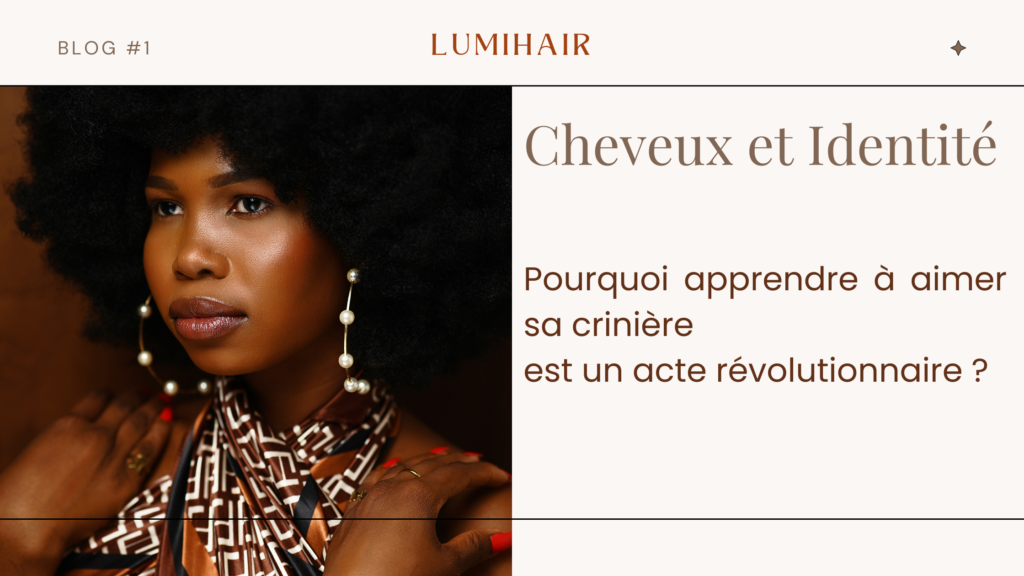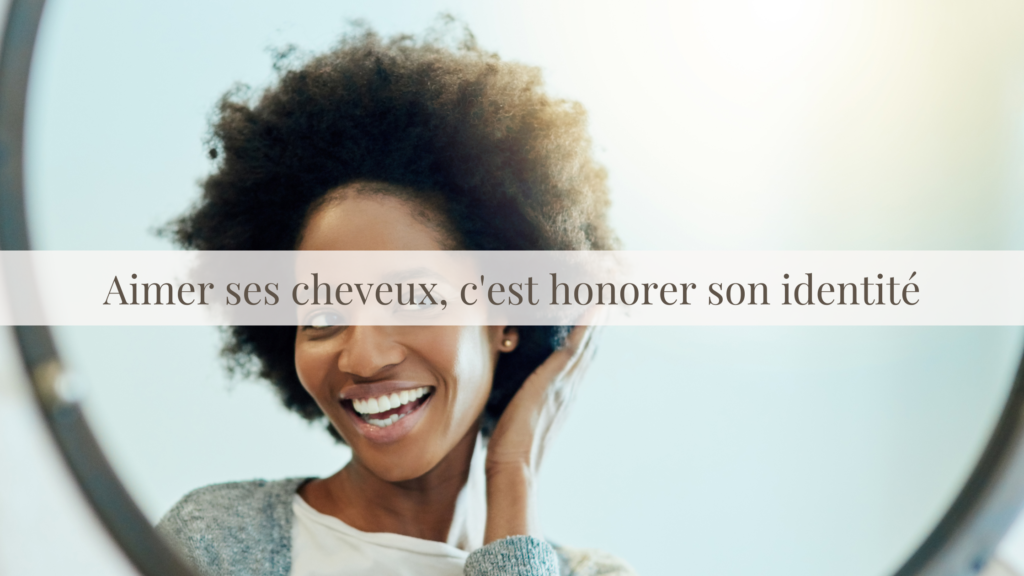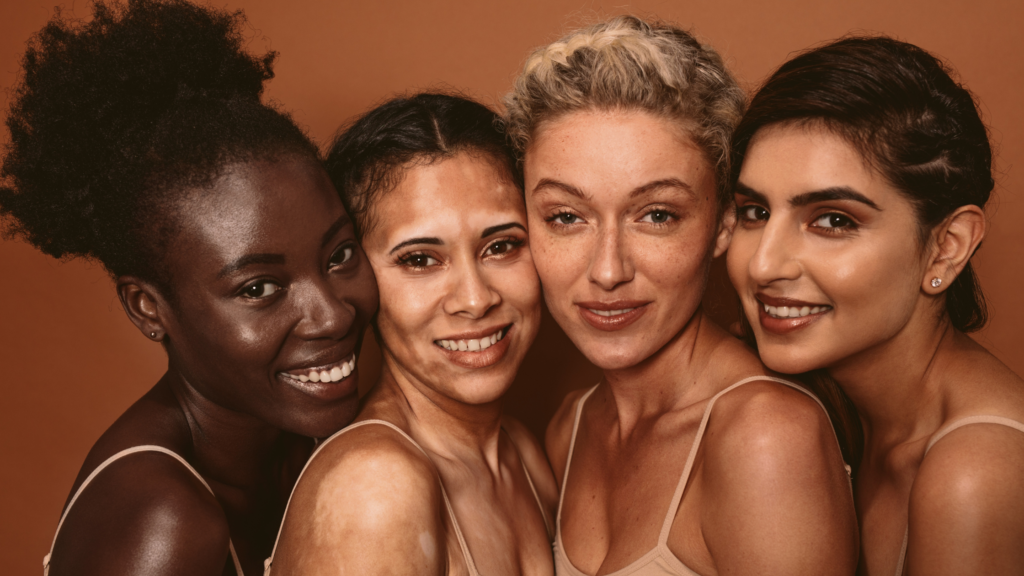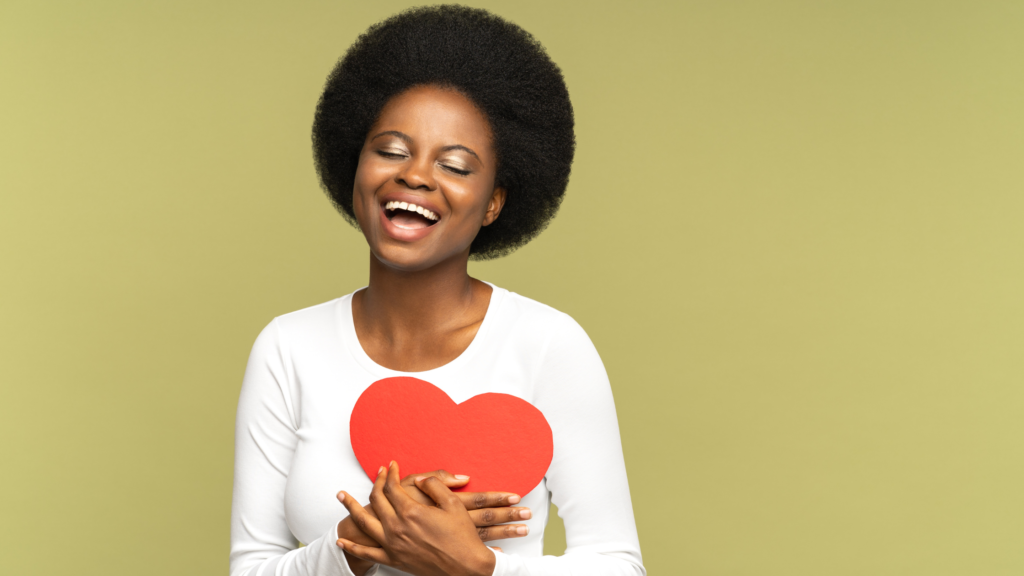
Hair and Identity: Why Learning to Love Your Mane is a Revolutionary Act
In a world where beauty standards are dictated by ephemeral trends and the diktats of the cosmetics industry, learning to love your natural hair is much more than a simple aesthetic decision. It's an act of resistance, self-affirmation and a profound reconnection with our identity. Our hair carries with it a history, a culture and a heritage that are often overlooked or downplayed. Now is the time to celebrate it.

Hair: A Cultural and Personal Heritage
Hair has always been a mark of identity and culture. In many traditions, it symbolises strength, wisdom and social status. In some African cultures, for example, plaits are more than just a hairstyle: they tell a story, indicate membership of a tribe and can even serve as a map in the history of oppressed peoples.
Unfortunately, colonisation, globalisation and imposed beauty standards have gradually erased this richness by favouring Eurocentric hair standards. Many people with textured hair have been conditioned to see their curls as undesirable, difficult to maintain or inappropriate in certain professional contexts. Returning to natural hair is a way of reconnecting with its essence and honouring its heritage.
Why do we find it so hard to love our natural hair?
Accepting your natural hair is not always easy. It is often hampered by :
- Social pressures : Since childhood, we've been bombarded with images that define what "beautiful hair" is. The media and advertising have long ignored natural textures, making them invisible or unacceptable.
- Lack of knowledge Many people don't know how to look after their natural hair because they've never been taught to do so. This can make going back to natural seem daunting.
- The Influence of the Cosmetics Industry For decades, the hair industry has promoted straightening and chemical transformation products that have made natural texture marginal and difficult to accept.
Learning to Love Your Hair: Liberation and Rediscovery
Loving your natural hair is above all a process of re-education and reconciliation with yourself. Here are a few key steps to achieve this:
- Find out about your hair type Each texture has its own specific needs. Getting to know them is the first step towards loving them.
- Adopt a caring hair routine Moisturising, nourishing, protective styles... Taking care of your hair becomes a ritual of well-being.
- Deconstructing imposed beauty standards Surround yourself with inspirational models, follow natural hair influencers and watch documentaries on the history of Afro and curly hair.
- Accept criticism graciously : Changing your hair can provoke a variety of reactions, but the important thing to remember is that your well-being and self-esteem come before outside opinions.

Hair as a Symbol of Self-confidence
Accepting and loving your natural hair has repercussions far beyond the aesthetic aspect. It has a direct impact on self-confidence and self-esteem. By becoming aware of the beauty and uniqueness of your hair, you're sending out a powerful message: "I'm beautiful just the way I am."
It also inspires future generations. Children who grow up seeing adults proudly wearing their natural hair will be less likely to conform to standards that don't suit them.
Conclusion: A Road to Acceptance and Empowerment
Loving your natural hair is a personal and collective journey. It's a step that may seem trivial, but in reality it's a powerful act of self-empowerment. Wearing your hair as it is means asserting yourself, freeing yourself from complexes and giving future generations pride in an identity that has long been sidelined.
Your hair is unique, it tells your story. It's time to love and celebrate it.

